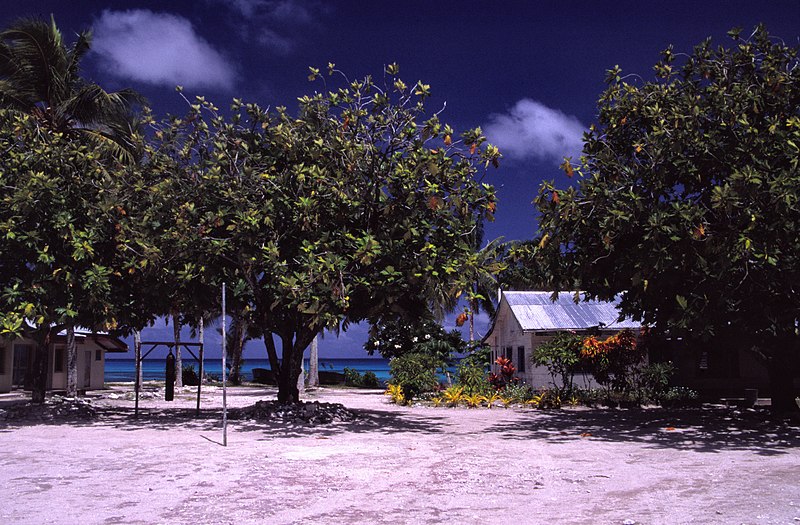Adopting from Tuvalu
Notice: As of July 14, 2014, all individuals and agencies facilitating international adoptions must be in compliance with the Intercountry Universal Accreditation Act.
The information contained on this website is for educational purposes only and is not intended to be a substitute for professional legal advice. Always seek the advice of a licensed and qualified professional. While the content of this website is frequently updated, information changes rapidly and therefore, some information may be out of date, and/or contain inaccuracies, omissions or typographical errors.
Contents
About Tuvalu
In 1974, ethnic differences within the British colony of the Gilbert and Ellice Islands caused the Polynesians of the Ellice Islands to vote for separation from the Micronesians of the Gilbert Islands. The following year, the Ellice Islands became the separate British colony of Tuvalu. Independence was granted in 1978. In 2000, Tuvalu negotiated a contract leasing its Internet domain name ".tv" for $50 million in royalties over a 12-year period. Source: www.cia.gov/library/publications/the-world-factbook/geos/tv.html.
Hague Convention Information
Tuvalu is not party to the Hague Convention on Protection of Children and Co-operation in Respect of Intercountry Adoption ( Hague Adoption Convention ). Therefore, when the Hague Adoption Convention entered into force for the United States on April 1, 2008, intercountry adoption processing for Tuvalu did not change.
There are two important points to consider when adopting a child from Tuvalu: 1) Only children below the age of 12 may be adopted; and 2) children who have attained the age of 10 years are usually, but not always, required to consent to their adoption.
Who Can Adopt
To bring an adopted child to United States from Tuvalu, you must be found eligible to adopt by the U.S. Government. The U.S. Government agency responsible for making this determination is the Department of Homeland Security, U.S. Citizenship and Immigration Services (USCIS). To learn more please read about Who Can Adopt from Tuvalu.
Who Can Be Adopted
Tuvalu has specific requirements that a child must meet in order to be eligible for adoption. You cannot adopt a child in Tuvalu unless he or she meets the requirements outlined below. In addition to these requirements, a child must meet the definition of an orphan under U.S. law for you to bring him or her back to the United States. Learn more about these U.S. requirements. To learn more please read about Who Can Be Adopted from Tuvalu.
How to Adopt
Adoption Authority
There is no support system or body in Tuvalu which oversees international adoptions. The Senior Magistrate Court handles international adoptions.
The Process
The process for adopting a child from Tuvalu generally includes the following steps:
- Choose an Adoption Service Provider
- Apply to be Found Eligible to Adopt
- Be Matched with a Child
- Adopt the Child (or Gain Legal Custody) in Tuvalu
- Apply for the Child to be Found Eligible for Adoption
- Bring Your Child Home
To learn more about this process please read How to Adopt from Tuvalu.
Traveling Abroad
Applying for Your U.S. Passport
A valid U.S. passport is required to enter and leave Tuvalu. Only the U.S. Department of State has the authority to grant, issue, or verify U.S. passports. Getting or renewing a passport is easy. To learn more please read about Traveling Abroad in Tuvalu.
After Adoption
What resources are available to assist families after the adoption?
Many adoptive parents find it important to find support after the adoption. Take advantage of all the resources available to your family -- whether it's another adoptive family, a support group, an advocacy organization, or your religious or community services.
Here are some good places to start your support group search:
Child Welfare Information Gateway
North American Council on Adoptable Children
Adoption Services Support Group for Adopting Persons
Contact Information
U.S. Embassy in Tuvalu
The United States does not have an Embassy or Mission in Tuvalu. The Embassy that covers Tuvalu is located in Fiji. That Embassy's Consular Section is located at:
The Embassy of the United States, Suva, Fiji 31 Loftus Street P.O. Box 218 Suva, Fiji Tel: (679) 331-4466 Fax: (679) 330-2267 Email: consularsuva@state.gov Internet: U.S. Embassy Tuvalu
Magistrate's Court Funafuti, Tuvalu Tel: (+688) 20837
Embassy of Tuvalu
Tuvalu does not have an Embassy or Consulate in Washington, D.C. Tuvalu's only official representative in the United States is at the United Nations in New York:
The Permanent Mission of Tuvalu to the United Nations 800 Second Avenue, Suite 400 B New York, NY 10017 Tel: (+1 212) 490-0534 Fax: (+1 212) 808-4975
Office of Children's Issues
U.S. Department of State CA/OCS/CI SA-17, 9th Floor Washington, DC 20522-1709 Tel: 1-888-407-4747 E-mail: AskCI@state.gov Internet: U.S. Department of State
U.S. Citizenship and Immigration Services (USCIS)
For questions about immigration procedures, call the National Customer Service Center (NCSC)
1-800-375-5283 (TTY 1-800-767-1833)
SOURCE
Intercountry Adoption, Bureau of Consular Affairs. U.S. Department of State Country Information adoption.state.gov/country_information/country_specific_info.php?country-select=tuvalu








